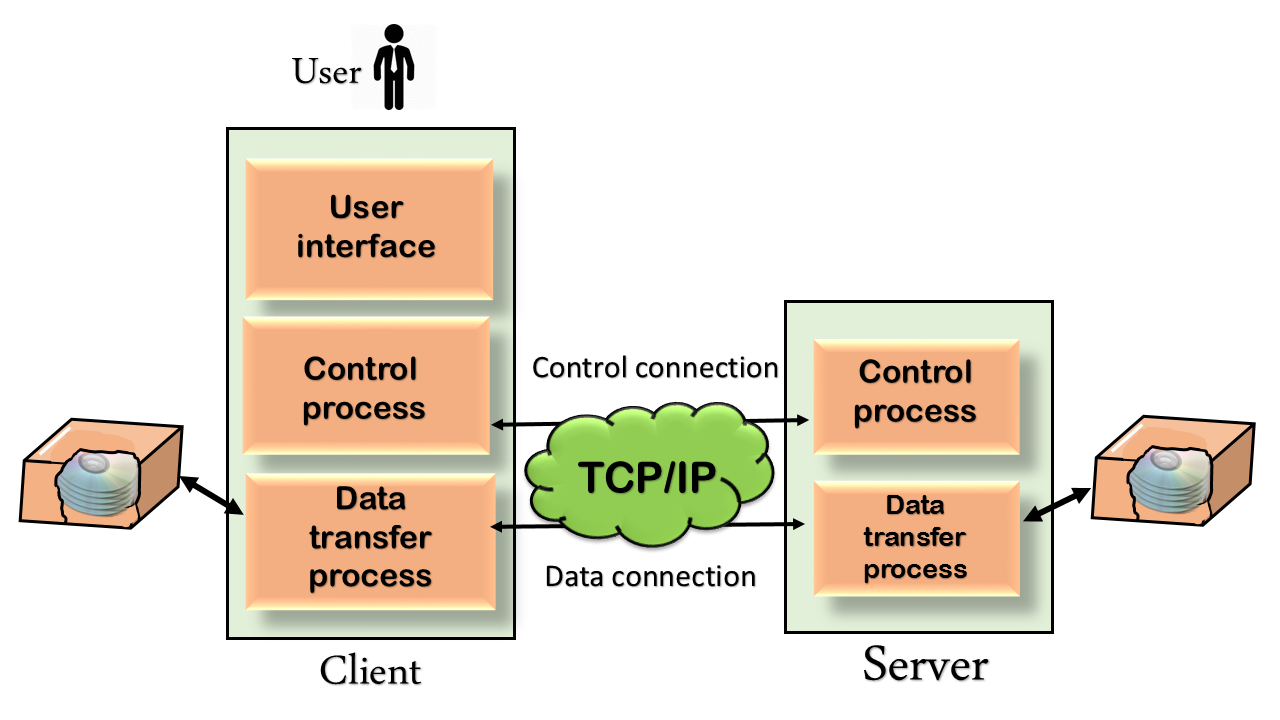File Transfer is the process of sending and receiving digital files across a network. Businesses need a file transfer solution that is fast and secure.
Advanced file transfer solutions have high-performance capabilities that deliver reliable file movement, and security features that protect sensitive data. JSCAPE MFT Server is one such managed file transfer server that comes with security and automation capabilities out of the box.
File Transfer Protocol (FTP)
FTP is a file transfer protocol that uses two connections to transfer data. One connection is utilised for control processes, and the other is used to transfer the actual files being transferred.
File data is sent as a continuous stream of bytes using Stream mode. Files can be split into records or pages, with each page having a header containing various attributes.
In a world of increasing cybersecurity threats, it’s important to note that FTP does not encrypt passwords or transferred files, leaving sensitive data vulnerable to hackers. In addition, FTP does not have robust error checking mechanisms or support resuming transfers.
FTP also does not work well with firewalls, which can make it difficult to use in a business setting. This is why many companies choose to upgrade to a managed FTP solution that comes with enhanced security and compliance features. These features can help to ensure that users are following password best practices and keeping files secure.
File Sharing Systems
File sharing systems offer a number of benefits to businesses. They can provide a centralized location for sharing files with both internal and external collaborators, resulting in higher productivity for teams. They can also offer a variety of security measures to ensure data is protected from unauthorized access. Some solutions even have the ability to meet compliance standards such as HIPAA and GDPR.
The best file sharing programs have user-friendly interfaces and intuitive navigation that makes them easy for non-technical users to use. They should also offer adequate storage capacity to accommodate the organization’s current and future file transfer requirements.
Many cloud-based file sharing programs are gaining popularity due to their scalability, ease of synchronization across devices and robust security features. They also allow users to work offline and then resynchronize the file once they’re online again. This type of program is ideal for organizations with remote employees. It can be difficult to maintain workplace confidentiality when an employee works offsite or at home.
File Transfer Methods
Many organizations are relying on data transfers to meet business demands. They need to exchange large files with customers, suppliers and partners. It’s important to have the right tools to ensure that the information is secure and gets to its destination quickly and accurately.
Email file sharing providers and removable storage solutions are common methods for sharing files. However, they can put information at risk if used across the enterprise. Using a secure managed file transfer (MFT) solution enables your team to centralize your file transfer processes and implement additional layers of security and workflow automation.
Additionally, MFT solutions can provide monitoring of big file transfers to help you keep your proprietary and sensitive information safe. Look for a service provider that prioritizes its customer support and offers 24/7 assistance as well as extensive online documentation. This way, you can address any questions or concerns immediately. You can also choose a service that offers transfer-level encryption to protect your information from hackers who might gain access through shared links.
File Transfer Security
As cyber threats grow in complexity, the need for secure file transfer connections becomes increasingly urgent. When data is transmitted unencrypted, it is vulnerable to interception and tampering by malicious actors. This is especially true for files that are in transit, moving between systems online.
To prevent the loss of sensitive information, many companies now utilize secure file transfer solutions that employ robust encryption protocols. These technologies are a critical tool in safeguarding data from theft or disclosure and mitigating the risks of compliance violations, financial damages, and reputational damage.
The security features of secure file transfer solutions vary widely from product to product, but typically include a wide range of protections including encryption and authentication. The best solution for your business will depend on the specific needs of your data and your compliance standards. For example, a food and beverage manufacturer may require the use of secure file transfer to ensure their closely guarded product formulas are not disclosed to competitors.









